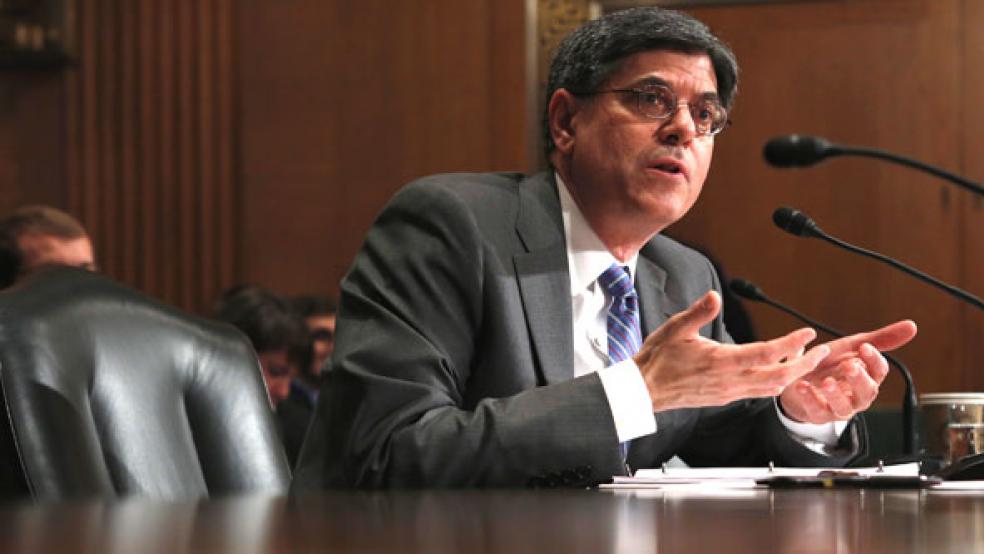Treasury Secretary Jack Lew’s Senate confirmation hearing last month inadvertently rekindled an important debate in the academic world: How far can colleges and universities go in luring big names to top administrative posts without driving up already astronomical tuition costs and discouraging other faculty members with flat-lined salaries?

Lew raised Republican eyebrows with the disclosure he had received a $1.4 million preferential mortgage loan from New York University on top of his $840,000 a year-salary during his five years as Executive Vice President for Operations beginning in May 2001. Sen. Charles Grassley, R-Iowa, for one, argued that a tax-exempt university or nonprofit organization should not be granting big sweetheart loans – complete with a hefty forgiveness clause – to an officer or trustee of its organization.
“Universities receive special tax-exempt status primarily because they are responsible for educating students,” Grassley said in a letter to the university last week. “The benefit of this special tax exemption is intended to be passed on to students to reduce the cost of their education and increase its quality. In recent years, however, college tuition has soared, and there is little evidence that these increased costs measurably improved education.”
A VOTE OF NO CONFIDENCE FOR SEXTON
But the preferential loan and other generous perks that Lew received during his hiatus from government proved to be a mere drop in the bucket. NYU officials subsequently disclosed that the university currently has outstanding loans totaling $72 million to 164 favored faculty members and four others who don’t even work for the school. John Sexton, the long-time president of NYU who arranged to hire Lew, was the target of a vote of “no confidence” last week by a majority of the faculty in the College of Arts and Sciences who had grown frustrated and angry with Sexton’s stewardship.
The 52 to 48 percent vote of disapproval by the 569 faculty members taking part in the referendum stemmed largely from dissatisfaction with Sexton’s top-down management style and repeated failure to consult them on plans for major expansion of programs at home and abroad, according to some faculty members. But many of the faculty also were upset with their pay, and believed that the high salaries and perks that went to Lew and other top employee were more suitable for a corporation than a non-profit institution.
“I wouldn’t say it was the icing on the cake, but a lot of the revelations in recent weeks about these compensation packages at the top – not just Jack Lew’s but others—I think brought a lot of people off the fence,” Andrew T. Ross, a professor of Social and Cultural Analysis and head of the NYU chapter of the American Association of University Professors, told The Fiscal Times Tuesday.
“Faculty who don’t necessarily get concerned with governance issues or for whom academic governance is not something that turns them on, these revelations I think turned the stomachs of a lot of people,” Ross added. “Just the scale of the payouts, multimillion dollar loans, multimillion dollar homes that were purchased, and the salaries. They really add up to a package of questions that have led to requests for further investigations.”
In recent years, faculty members at the University of Virginia, the University of Texas at Austin, Duke University and Emory University have complained that they have been cut out of important decisions about the strategic direction, planning and personnel matters of their universities -- sometimes blaming administrators and at other times blaming trustees and backing administrators. Inside Higher Ed reported that this distrust between key stakeholder groups -- trustees, administrators and faculty members -- is making it difficult for universities to address questions that higher education observers say need to be addressed.
These festering internal disputes over the future direction of major universities and the way they are spending their money on faculty and administrators coincides with the ever mounting rise in the cost of tuition and room and board and $1 trillion of student debt. The College Board in its most recent survey of college pricing reported that a "moderate" college budget for an in-state public college for the 2012–2013 academic year averaged $22,261. A moderate budget at a private college averaged $43,289.
Tuition and other fees for NYU are now nearly $60,000 per year , and that's before the expenses of books and supplies are added in.
BIG TIME MONEY AND BONUSES
Sexton, who earns a reported $1.5 million a year as president and has been awarded a $2.5 million length of service bonus, to be paid in 2015, issued a statement after last week’s no-confidence vote, saying that NYU had already begun taking steps to hear more faculty concerns and that he looks forward “to working with the faculty to maintain NYU’s academic trajectory and prepare for the challenges ahead.”
Martin Dorph, NYU’s executive vice president for finance and information, wrote in an email to faculty that their strong feelings about the university were justified and that the university administration is “keenly aware that the salaries people earn here are often not as much as they want or feel they need.”
Dorph added, however, that “it is important to note the economic truth that the markets for different positions often dictate different levels of compensation, whether that is embodied in salary payments, loans, or an overarching agreement about terms of employment.”
“And when we commit to provide such compensation, we do so only when we are sure that the benefit to the University far exceeds the cost,” Dorph said.
But many faculty members remain Infuriated by what they see as a growing disparity in the salaries for higher and lower-paid faculty members and the administration’s frequent use of out-sized salaries and benefits to recruit big names from Washington or the corporate world. Late last week, Ross and other members of the AAUP asked the New York Attorney General’s office to investigate NYU’s personnel benefits practices.
Meanwhile, Grassley has requested that the board of trustees provide his office with documents and records of salary and pension packages dating back a decade. Grassley said yesterday that at least one major charitable umbrella organization, Independent Sector, frowns on executive loans by its member organizations, while the Internal Revenue Service discourages perks for executives of certain tax-exempt groups.
“It makes sense that a tax-exempt organization [such as NYU] should not confer special benefits to select executives,” Grassley told The Fiscal Times. “A tax-exempt organization receives its special tax status to fulfill its charitable mission. It certifies its mission to the IRS in exchange for its special tax status. Sweetheart loans for executives arguably don’t fulfill the charitable mission of educating students. The onus is on the organizations that provide such loans to explain why they do or stop providing them if they don’t.”
JACK LEW GETS A TASTE OF NYU LARGESSE
Lew, a veteran Democratic budget and policy official who first gained prominence as President Bill Clinton’s White House budget director, spent five years in the academic world after Republican President George W. Bush took office. He received what some might consider a uniquely generous compensation package, earning $184,213 more in his last full year at NYU (fiscal 2005) than his successor, Michael Alfano, did six years later, according to federal tax filings by the university.
The future Treasury secretary received compensation totaling $792,173 in his final full year at NYU. He left in the middle of 2006 for an operations job with Citigroup, with a $685,000 severance bonus from the school, according to The New York Times. NYU promoted Alfano, previously the dean of the dentistry school, to Lew's former position of executive vice president. The most recent publicly available 2011 tax filings by NYU report that Alfano received $607,860 in compensation.
As for the $1.4 million mortgage loan from NYU, Lew used it to buy a home in the upscale Riverdale section of the Bronx. Shortly after the Finance Committee confirmation hearing in late February, Grassley released Lew’s answers to the written follow-up questions that he and Sen. Orrin Hatch of Utah had submitted after complaining that Lew had been evasive in his testimony.
“My understanding,” said Grassley, “is that according to Forms 990 filed by New York University from 2002 to 2005 you were provided a sizable loan as part of your employment. The amounts reported include $1.4 million in 2002, $748,000 in 2003, $698,000 in 2004, and $673,000 in 2005.”
Grassley asked Lew to “describe the terms of the loan including interest rate, minimum payment requirements, term, and the purpose of the loan” as well as how a reasonable rate of interest was determined, how the loan was repaid, and whether any portion of it was forgiven.
Lew’s response was: “In short, the University provided a mortgage forgiven in equal installments over five years, and an additional shared appreciation mortgage. I do not recall the interest rate or other specific terms. According to my employment agreement, the interest on both loans was equal to the rate earned by the bond portion of NYU’s endowment in the quarter preceding the signing of the mortgage.”
In other words, NYU gradually forgave a big chunk of the $1.4 million loan they provided Lew to buy his home, totaling $440,000 that was reported to the IRS. Lew said he subsequently repaid NYU the remaining $670,000 he owed, by refinancing the loan through a private mortgage lender.
The Fiscal Times’ Josh Boak contributed to this report.





